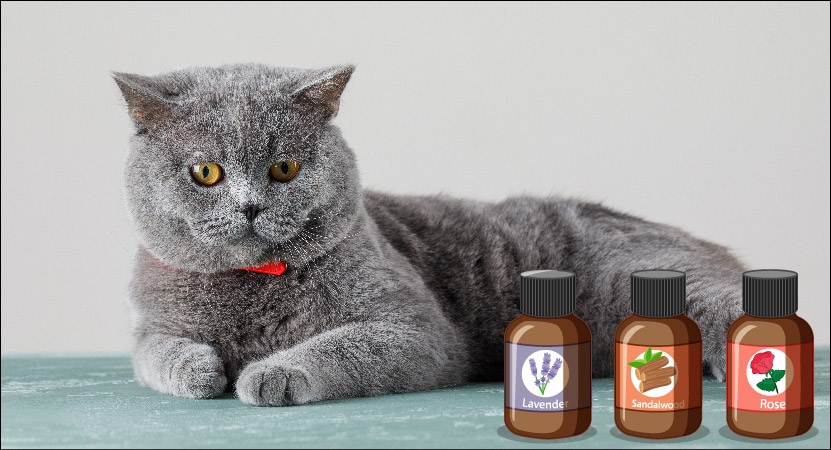Do you use essential oils in your home? If so, are you aware of which ones are safe for cats? Cats are particularly sensitive to essential oils, and some can be toxic if ingested. In this blog post, we will discuss which essential oils are safe for cats and how to use them safely around your furry friend!
What is an essential oil?
essential oils are extracted from various parts of plants like flowers, leaves, stems etc by using steam distillation (commonly used) or cold press. These are highly concentrated form of plant aroma which has many therapeutic benefits for humans.
Why some essential oils are bad for cats?
So, something which is so good for us why is it bad for our cat? the simple answer is cat’s metabolism and liver don’t function like ours. If injected, they can’t neutralize it or get rid of it, which can result in serious health issues.
Which essential oils are bad for cats?
Avoid using the essential oils around cats with high salicylates or phenols like:
- Cinnamon
- Basil
- Citrus
- Clove
- Mountain Savory
- Eucalyptus
- Peppermint
- Pine
- Oregano
- Sweet Birch
- Tea Tree
- Thyme
- Wintergreen
- Ylang Ylang
If you have any questions about which essential oils are safe for your cat, please consult your veterinarian.
Which essential oils are safe for cats?
The following essential oils are safe to use around cats:
- Chamomile oil
- Geranium
- Neroli
- Eucalyptus oil
- Lavender oil
- Lemongrass oil
- Rose oil
These oils can be diffused in a room. Never apply any essential oil directly on cat’s skin or fur. Chances are that they will ingest them while they lick themselves to clean which can be fatal.
What are the symptoms if my cat has ingested an essential oil?
If you think your cat may have been exposed to an essential oil, call your veterinarian right away. Symptoms of exposure include drooling, pawing at the mouth, weakness, seizures, agitation, fatigue, vomiting, and breathing difficulties.
Is it safe to use essential oils for fleas and ticks on pets?
The short answer is no. Essential oil like peppermint, eucalyptus, lavender, lemongrass, tea tree oil, etc which are mostly recommended to control fleas and ticks on pets have already proven to be harmful for them. Fleas and ticks can be very dangerous for pets as well as humans, so its important that you use proven methods to get rid of them. Do not put your and your pet’s health in danger by using using essential oils on them to control fleas and ticks, advises Natalie Stilwell, DVM, MS, PhD
Safety measures
Make sure you store essential oils safely at a location which is not accessible by your cat.
When you use essential oils in your diffuser, don’t use it on a close area with your cat inside. make sure it is ventilated.
If you accidentally drop essential oil on a surface, thoroughly clean the surface without leaving any traces.
if you apply essential oils topically on your hands and body, don’t start playing with your cat immediately after that.
I hope this article has helped you understand the issue of using essential oils around cats. If you need further clarification please consult your vet.
This website does not provide medical advice.
All information provided on this website, and on associated social media networks, including but not limited to texts, images, and numbers are for general information purpose only. It is not intended as medical advice and it does not include all possible precautions, side effects, or interactions that may occur. Neither NaturalLivingOnline.com nor its author/founder take responsibility for how you use this information. Statements contained on NaturalLivingOnline.com have not been evaluated by the FDA. You should conduct thorough research via multiple sources and consult your physician or qualified doctor before using any essential oil or herbal remedy. Information on NaturalLivingOnline.com must not be relied upon for medical, legal, financial or other decisions.













